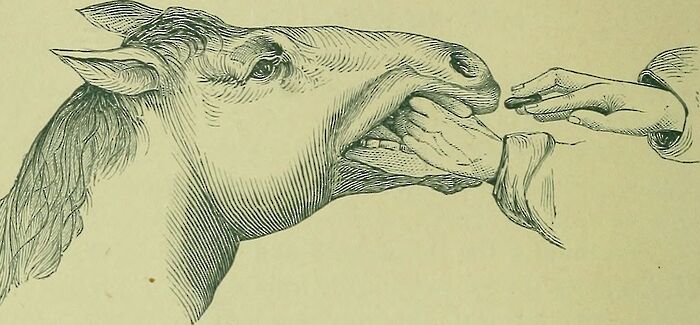My year on antidepressants
After a year on antidepressants, Megan Harding explores how they’ve changed her life – for the better

Content note: This article contains discussion of antidepressants and associated side-effects
8 thoughts I’ve had while on antidepressants
- Hmm, I could mix it into my food like a dog, so that I don't have to taste it.
- Oh fuck it's stuck in my throat, what do I do?
- I really wonder what people did before these kinds of drugs were available.
- Yeah it's really stuck in there. Shit.
- Citalopram really isn’t CitaloGLAM hahahahahaha.
- This is the third glass of water I've drunk to get it to go down. What do I do????
- I wish I didn’t have such a crap sleep schedule, because I keep forgetting to take these.
- Oh wow, I don't feel like I’m going to turn into a crying wreck every twenty minutes. How revolutionary.
Last Easter term, my parents came up for the weekend to visit. While we were out for a birthday meal, the conversation turned to mental health. “Did you know, over a third of all students are now on antidepressants?” my mum said. Everyone else nodded in mutual shock, but I kept my mouth closed. By then, I’d been on antidepressants for nearly six months, but no one in my family knew that.
I first went on antidepressants in January of this year. I’d had a truly terrible Christmas break: a bad breakup, the residual stress of a first term at Cambridge, and a genetic insufficiency of serotonin that had wreaked havoc on my mental state. This wasn't the first time I’d experienced the effects of anxiety or depression. What I’d never done before then, however, was seek medical help about it, always just writing it off as my teenage hormones going slightly overboard. But when Lent term arrived and I still wasn’t feeling better, I visited the doctor. My GP recommended that I take Citalopram, a common antidepressant that treated both anxiety and depression, warning me about the potential side effects that could occur in the first weeks.
I’ve realised that responding to how you’re feeling on the inside is really bloody important when you want to get the most out of life.
A few days into taking Citalopram, I went to a lecture and started to feel like my legs couldn’t work. They were numb and tingling, I was dizzy, and my heart rate was up – and no, it wasn’t just the shock of finding myself actually attending a lecture (although that does things to the heart rate, too). Over the next few weeks, the hot spells and faintness went away, and with them, so did the unbearable lows and intensely anxious episodes I’d been used to. Instead, I felt more grounded, like my feelings had finally found some sort of balance they’d never achieved before.
One of the weirdest things I found in those first few weeks was telling my friends about my medication. Announcing that I’d gone on antidepressants felt strangely formal, and I remember asking myself why I felt like I had to whisper when bringing it up. Not surprisingly, in talking about it, I found that many of my friends had gone through the same thing, though most people are so skilled at putting up a stoic front that I never would have known otherwise.
The fact that the number of students on antidepressants is considered a pandemic made me more reticent about telling my family. I worried that they’d think I was exaggerating to join this new ‘fad.’ So for a long time, I didn’t mention it, hiding the pills and taking them at odd times. But eventually, in May, I was late in picking up my prescription and found myself without medication for five days.
I felt more grounded, like my feelings had finally found some sort of balance they’d never achieved before.
How to describe the withdrawal symptoms of Citalopram? I felt the same disorienting wooziness as the Nicotine rush from the first puff of a cigarette – only constantly. Other symptoms swung in with unprecedented force: I was fatigued, horrifically irritable and overly emotional; even just walking too fast made my chest close up and my breath quicken. Whatever grounding I had felt with the medication came crashing down with alarming ease. I had a panic attack every single day.
Realising just how dependant I was on medication frustratingly felt like taking one step forward and two steps back. Towards the end of that week, I thought it might be a relief to tell my dad how I was feeling, so I sat on the wall outside college with a friend and called him. Not only was he completely understanding, but he also told me that every other adult in my family was, or had been, on antidepressants too. So much for any need of secrecy after all.
In a few months, it’ll be a year since I went on medication, and honestly, I can’t see myself coming off them anytime soon. Though I’m probably – hopefully – not going to be on antidepressants forever, the ways they’ve helped me in the past year are undeniable. If you feel even remotely similar, they might be something to think about.
I feel like I can be so much more honest with friends and family now that I’ve stopped trying to attain perfection.
If you at all doubt whether you are ‘qualified’ seek help, I want to say that, a few years ago, I’d have never even considered getting professional help: the idea of having to bare all to a stranger in therapy used to terrify me, and medication felt far like far too clinical an option. I felt invalid about going to the doctor’s about how I was feeling on the inside because nothing in my life externally – like friendships, school or work – ever reflected how miserable I felt. But since taking medication, I’ve realised that responding to how you’re feeling on the inside is really bloody important when you want to get the most out of life. It might feel like you can succeed by plastering on a smile, without letting anyone know how you’re really doing, but the weight off your chest that comes from being honest with people, and letting them help you, is incomparable.
Since taking medication, I’ve also tried many other ways to help myself mentally. I’ve trialled various therapists, though talking about your issues while you're on medication that’s meant to alleviate them isn’t always the most natural thing. I’ve been to psychologists, tried to meditate, and attempted the healing power of exercise – all of which have helped me substantially, if not temporarily. But most importantly, since January, I’ve had more conversations with both friends and family about mental health than ever before. I wish it didn’t take me going on medication for this change to happen, but I’m incredibly grateful that it did. I feel like I can be so much more honest with friends and family now that I’ve stopped trying to attain perfection and actually address the ups and downs of my mental health.
So start talking more about it to the people you care about – chances are they’ve been through something similar. Most of all, be kind to yourself. Take time to listen and care for your body and mind, and its basic needs. Regardless of how ‘well’ you’re coping, or how busy life can be, nothing will ever be more important than your mental wellbeing. No excuses.
 Comment / Why Cambridge needs college chapels11 June 2025
Comment / Why Cambridge needs college chapels11 June 2025 News / Cambridge professor denies falsifying test results in £1 million NHS claim11 June 2025
News / Cambridge professor denies falsifying test results in £1 million NHS claim11 June 2025 News / Dropouts at Cambridge fall to five-year low9 June 2025
News / Dropouts at Cambridge fall to five-year low9 June 2025 Features / Inside Cambridge’s nuclear bunker10 June 2025
Features / Inside Cambridge’s nuclear bunker10 June 2025 News / Robinson students sent elsewhere to wash clothes10 June 2025
News / Robinson students sent elsewhere to wash clothes10 June 2025






